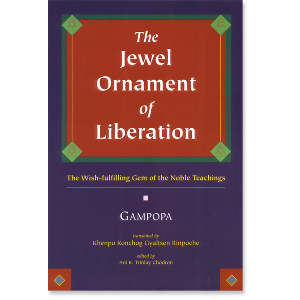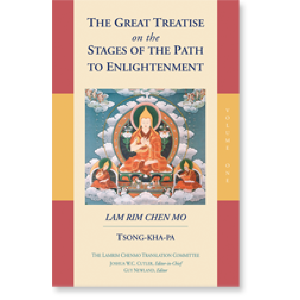by Radhule Weininger, author of Heartwork
A Surprising Discovery
Recently, during a one-year mindfulness facilitator training, our team of teachers made a surprising discovery. As part of an exercise, students were taught how to guide each other through mindfulness and compassion meditations. Afterwards, students shared their experiences of how this had been for them. One of those who shared was Anne. She told us that this exercise had helped her to understand the depth and subtlety of the mindfulness of breathing practice more deeply and enabled her to feel in a tender way her meditation partner Cloe’s sorrow. While we were pleased to hear this, we were not surprised. This is what we had been hoping for. However, what she shared next took us by surprise. She spoke of an “unexpected great joy” this process had given her, and, in her course evaluation shortly afterwards, described this as “the single best exercise in the training.” This was not only true for Anne; most everybody in our thirty-member strong group shared similar reactions to doing this exercise.
The Bodhicitta Effect
Bodhicitta is the wish for all beings to be well, to be happy, and to be free. Even our wish for own awakening is dedicated to the well-being of all. Bodhicitta is regarded as the jewel in the crown of Mahayana Buddhist practices. When we act on our wish to share our riches, such as knowledge, insight, happiness, or wealth with others who are less fortunate, we are acting with the motivation of Bodhicitta. As we act with the intention to help another to be more at ease, awake, and healthy, we notice that we ourselves become happier and increasingly content. At the same time, we notice a growing desire to continue working for the well-being of others. Our longing for connection, and to see another well and happy, becomes intertwined with our own happiness, meaning, and purpose. This is the “Bodhichitta effect.”
Bodhicitta is the wish for all beings to be well, to be happy, and to be free. Even our wish for own awakening is dedicated to the well-being of all.
Learning, Growing, and Receiving through Teaching
Currently, mindfulness teachers Jack Kornfield and Tara Brach are training about two thousand students to become facilitators. Their training is only one of many current mindfulness teacher trainings. What is it that draws so many to want to share their practice with others?
When we learn to teach, we don’t just do this practice of meditation for our own benefit but also for the benefit of others. As we deepen our practice of meditation and experience it more fully, our hearts open to those we guide, and compassion develops naturally.
Many years ago, when I began leading others in meditation, I realized that my understanding and experience of the practice was deepening, and that my heart was becoming naturally gentler and kinder. Talking with Jack Kornfield, my mentor of many years, about this, he smiled and said, “Yes, when you teach others, it works your own heart.”
I remember a phrase from my medical training, “Learn one, do one, teach one.” If we “learn” and “do” the practices of mindfulness, loving-kindness and compassion, then “teaching” others helps to open our own heart even more.
I remember a phrase from my medical training, “Learn one, do one, teach one.” If we “learn” and “do” the practices of mindfulness, loving-kindness and compassion, then “teaching” others helps to open our own heart even more.
The Healing Power of Caring and Sharing
What is happening here? Is this about the benefits of giving? Or is it about what happens when we go beyond just caring for our own well-being?
There has been extensive research on how giving makes us happier than receiving. Social scientist Liz Dunn writes in the journal Science that people’s sense of happiness is greater when they spend relatively more on others than on themselves. The Huffington Post reported a study on charitable giving. They found that when people donated to a worthy cause, the midbrain, an area related to pleasure, lit up.
Emphasizing the Buddhist principle of dependent co-arising, the Dalai Lama says that one’s own happiness is dependent on the happiness of others. In Ethics for the New Millennium he notes that happiness comes from a deep and genuine concern for others. The Dalai Lama calls giving to others, “wise-selfish,” because in the end, we gain as well. Mahatma Gandhi said, “The best way to find yourself is to lose yourself in the service to others.” Will we have to transform the idea of “self-help” from “me-help” into “we-help?”
If we understand that our giving, sharing, and passing on makes us happier and opens our hearts, then doing it begins to feel natural to us. So often we are taught that in order to be happy, we need to give priority to taking care of ourselves and, perhaps, also a very few near and dear ones. Even some Buddhist groups teach that we should contain ourselves to “sweeping our own door-steps.” But research tells us how important it is to share with others so that we feel happier, less afraid, less alone, and more empowered.
Arthur Brooks from Syracuse University pointed out that “givers” are happier and healthier than those who don’t. Stephen Post and Jill Neimark claimed in their book, Why Good Things Happen to Good People, that giving to others benefits the community and is therefore associated with pleasure and happiness. They also noted that compassion and kindness leave less room for negative emotions.
Giving to others releases “feel-good neurotransmitters,” and leads us to the self-reinforcing, yet virtuous cycle of a “helper’s high.” Sander van der Linden from the London School of Economics suggests that “giving” points to a solid internal code of conduct, which in turn is a strong psychosocial predictor of charitable intentions. This dynamic naturally leads to self-confidence, self-esteem, and resilience.
Practicing Interdependence
The Buddha’s central teaching is that the true nature of life is interdependence. Could it be that when we choose an activity with the intention of helping another, when we deliberately “practice interdependence,” that this brings us into alignment with “the way things are,” and that this brings us joy? Does happiness emerge spontaneously and organically when we practice interdependence?
The Bodhicitta Effect implies that our happiness, confidence, and sense of meaning are interwoven with our willingness and ability to share our knowledge, wisdom, and kindness with others. This is not only true of teaching meditation to others but to the generous and compassionate quality of every act of kindness.
The Bodhicitta Effect implies that our happiness, confidence, and sense of meaning are interwoven with our willingness and ability to share our knowledge, wisdom, and kindness with others.
I remember Peter, another student in our training, who had complained many times of how “numb” he felt throughout the months of our time together. In the closing circle, Peter spoke of how he had experienced empathy in a new and caring way for Stuart, whom he had been guiding.
There are many ways to share and serve. Teaching meditation is a way to practice compassionate action that allows us to grow and deepen in the process. And it does not matter whether we are guiding just one other person, or two neighbors, or a bigger group in meditation—the Bodhicitta Effect is activated.
Related Books
$16.95 - Paperback
$19.95 - Paperback
The Jewel Ornament of Liberation
$39.95 - Paperback
The Great Treatise on the Stages of the Path to Enlightenment (Volume 1)
$34.95 - Paperback







